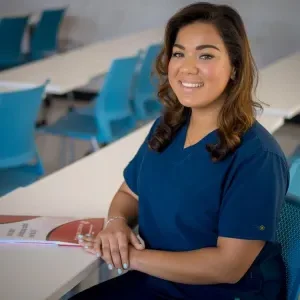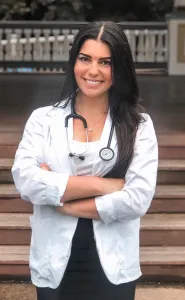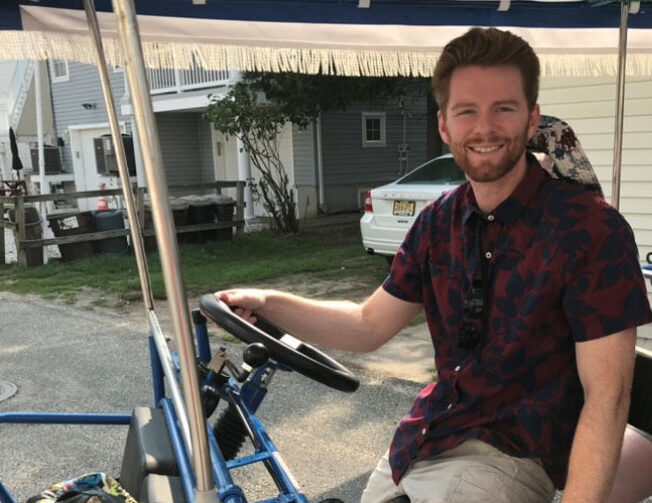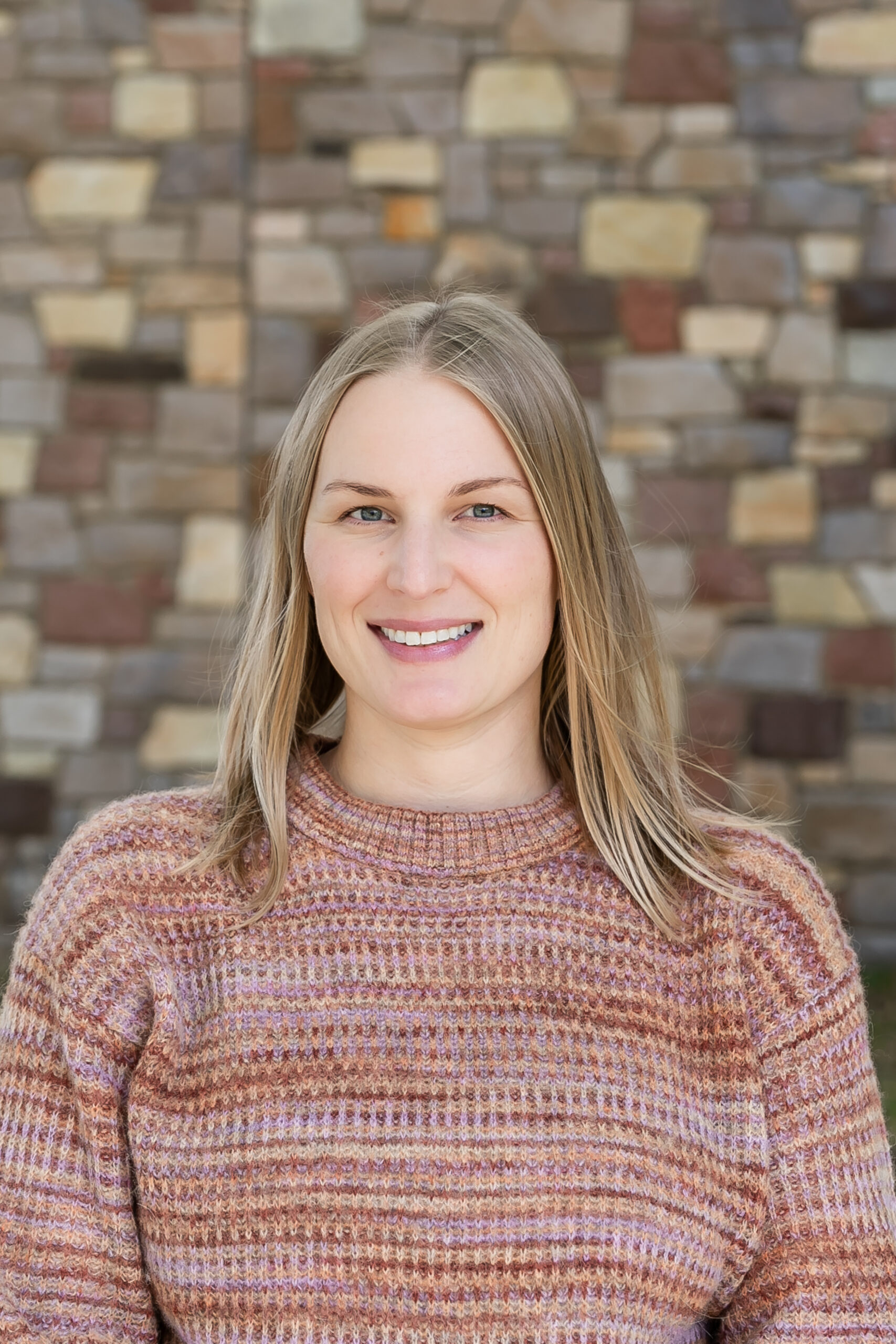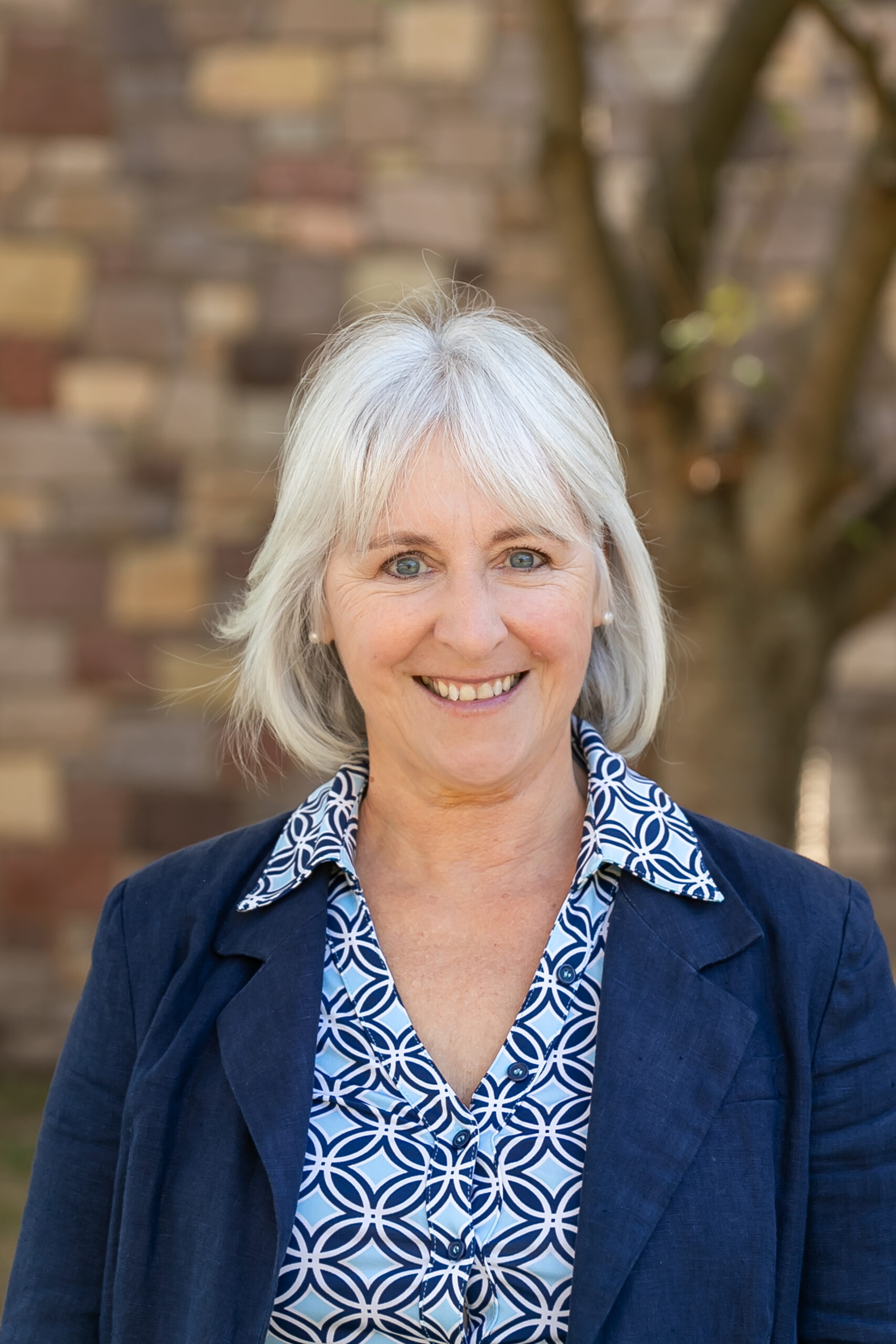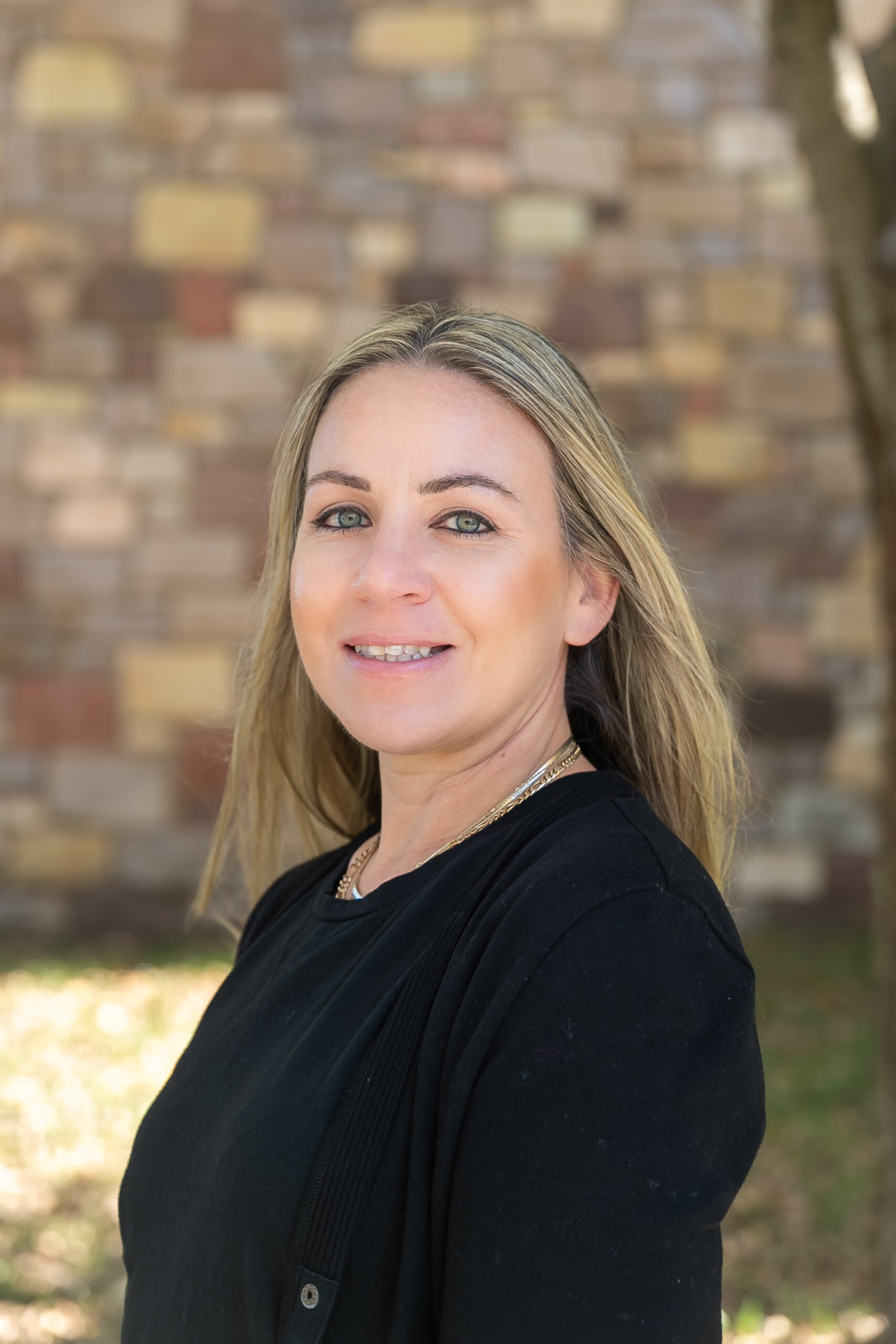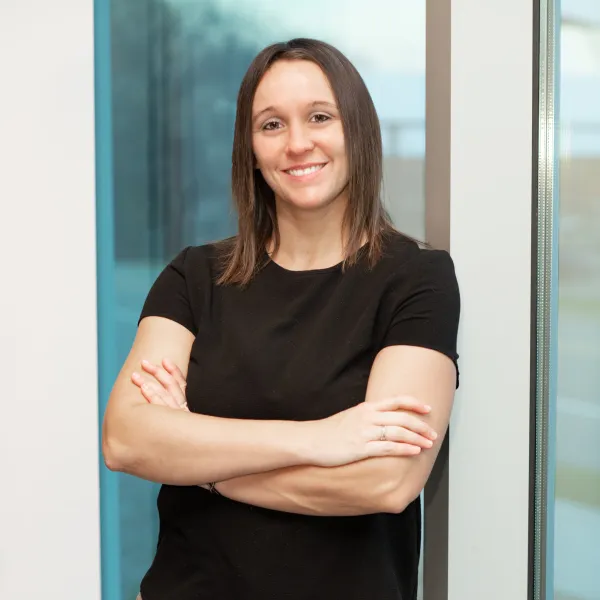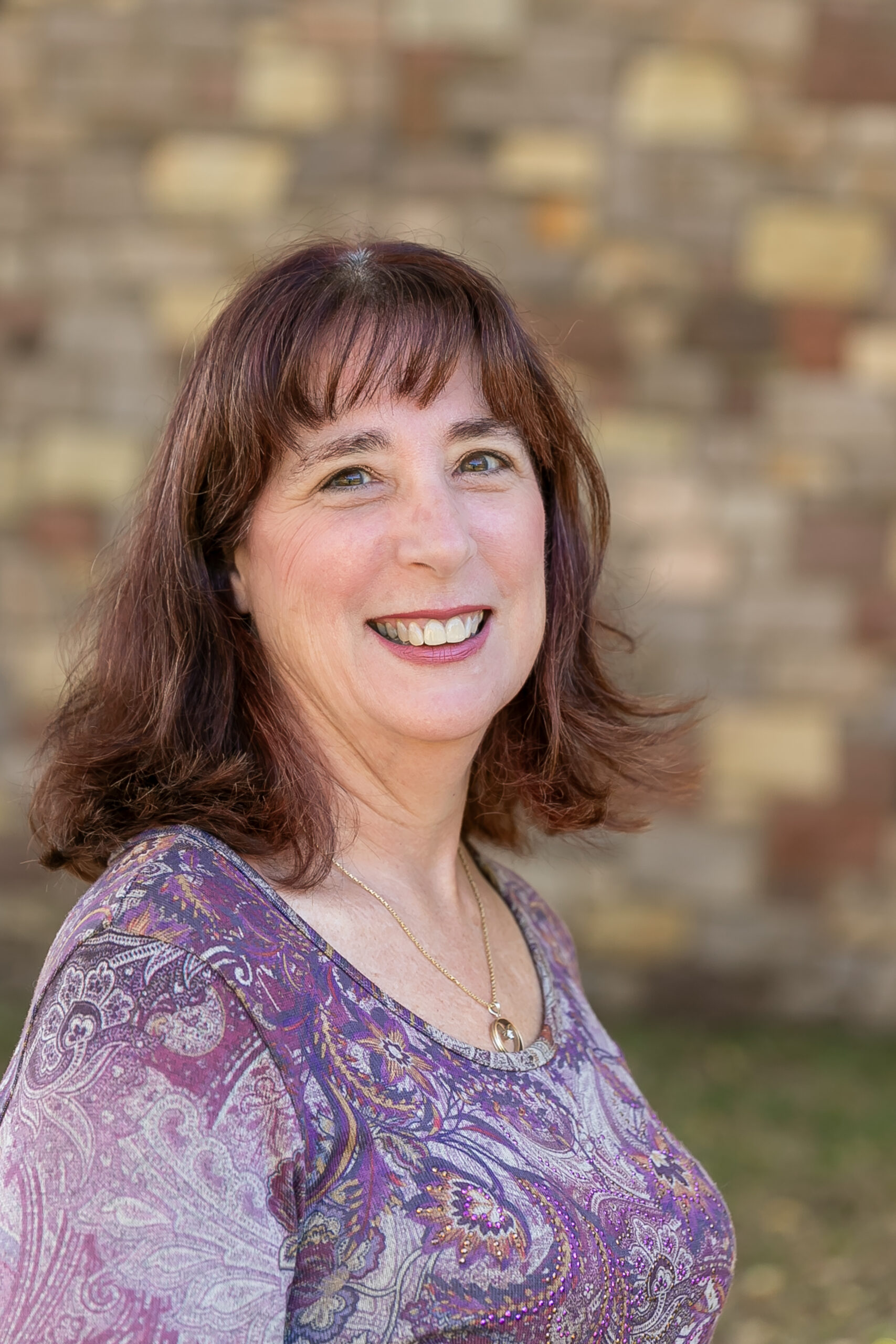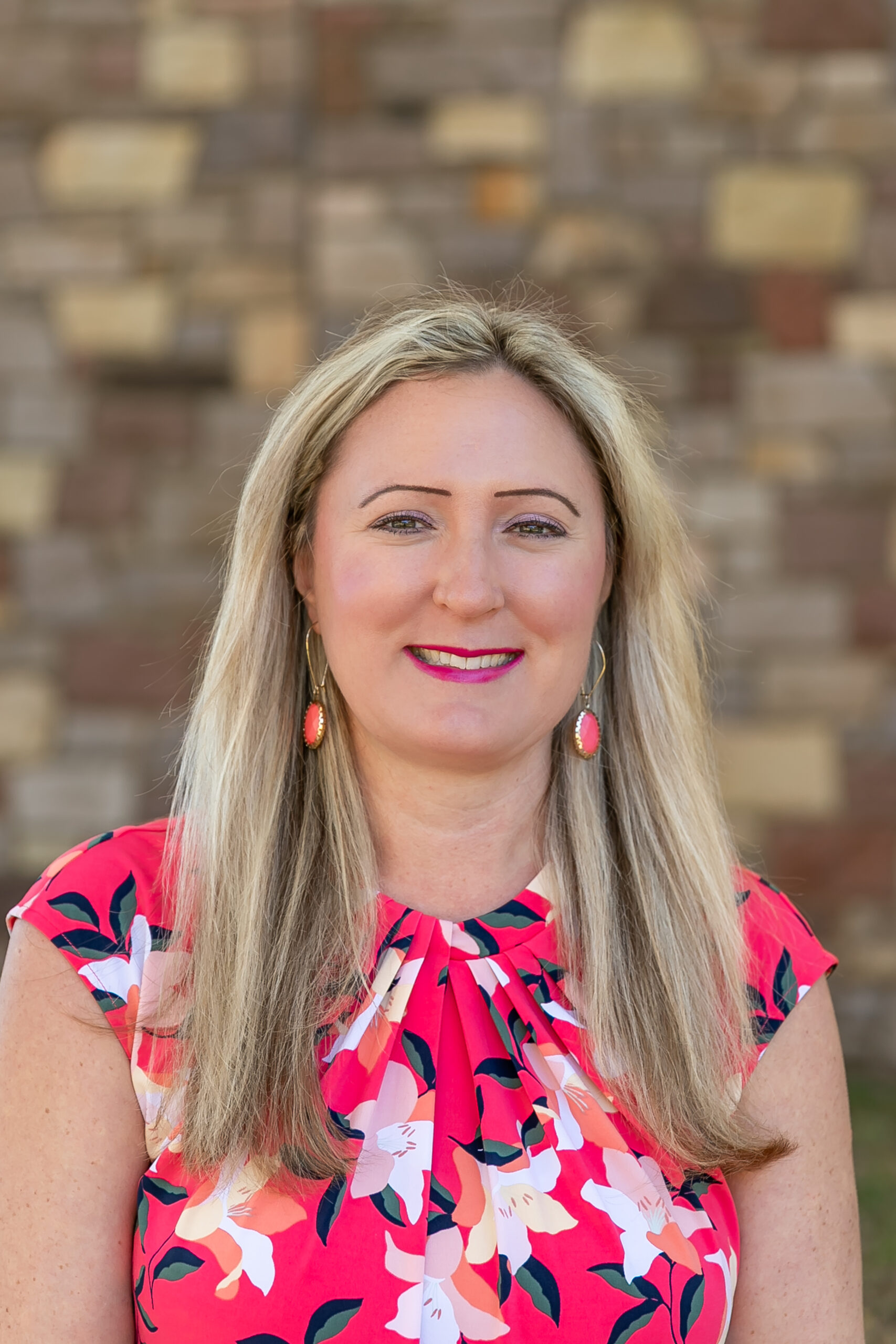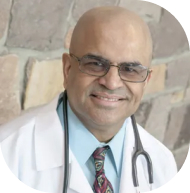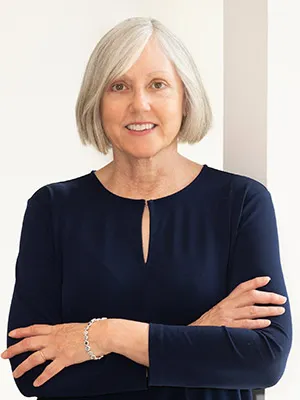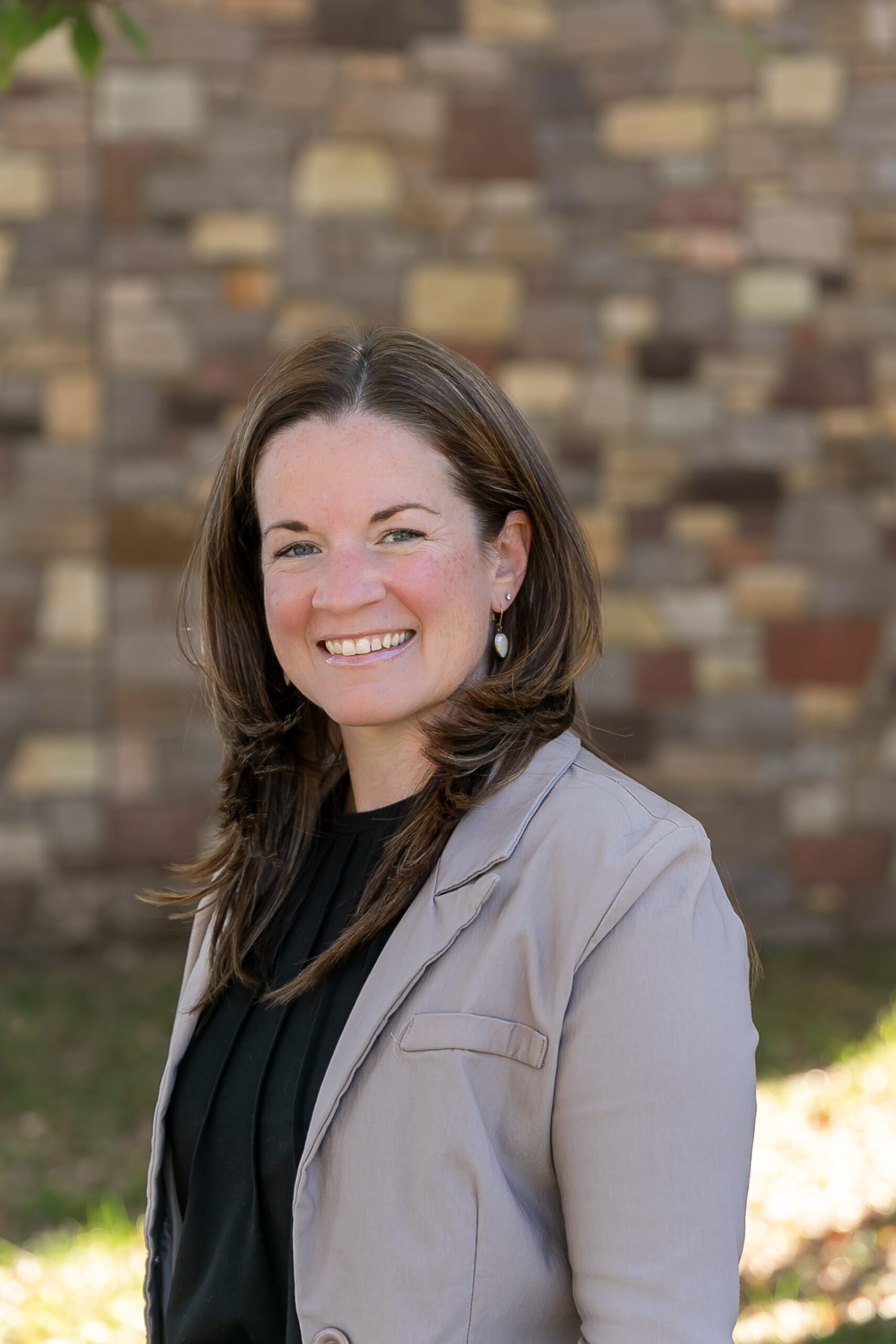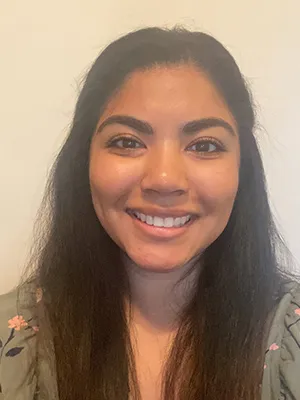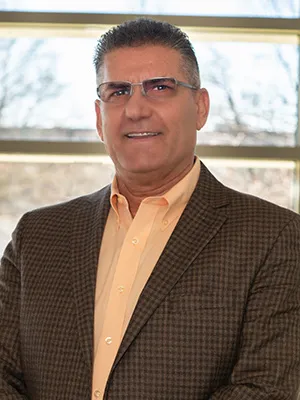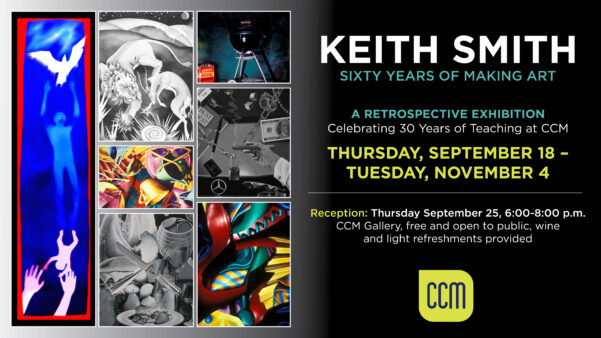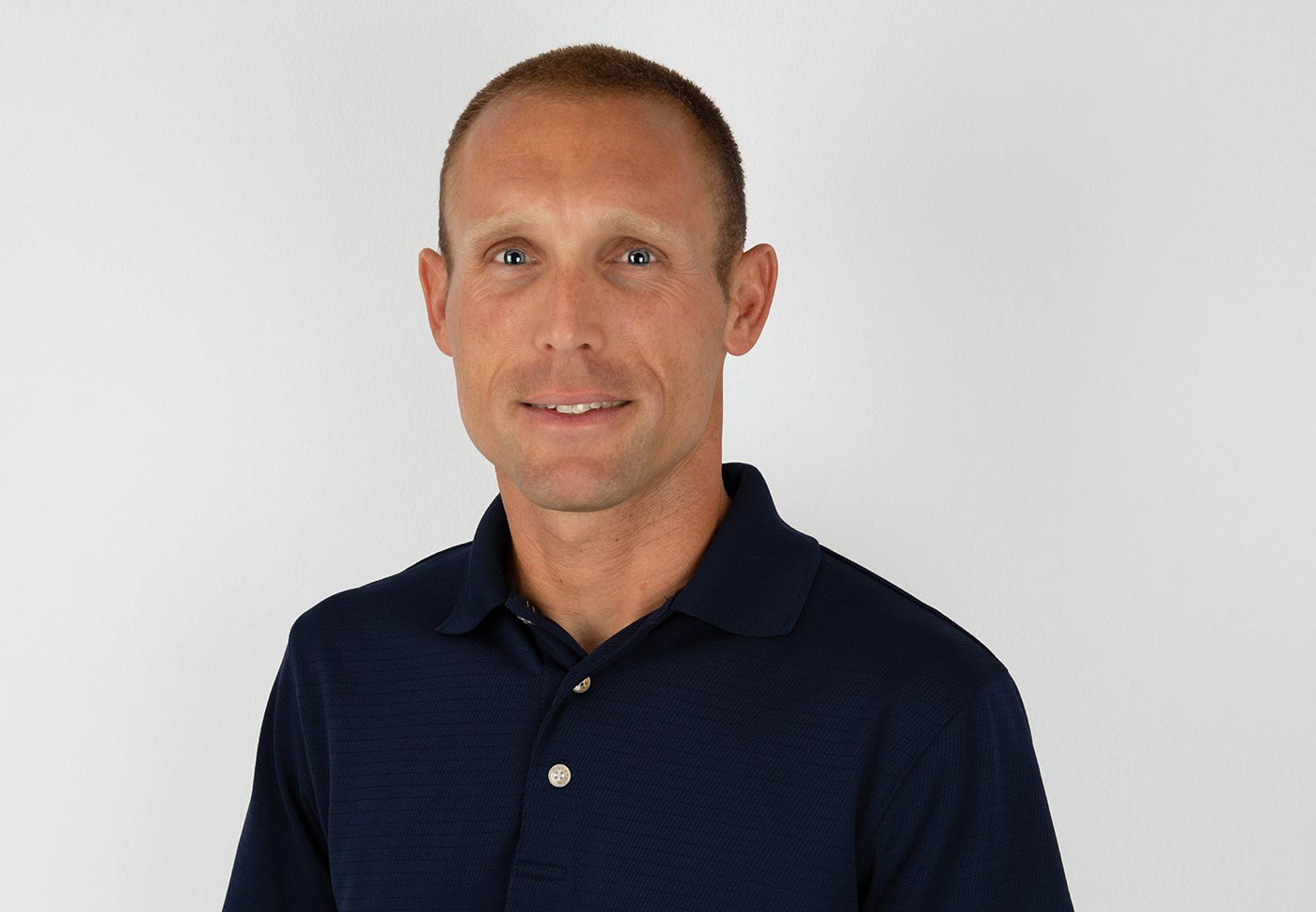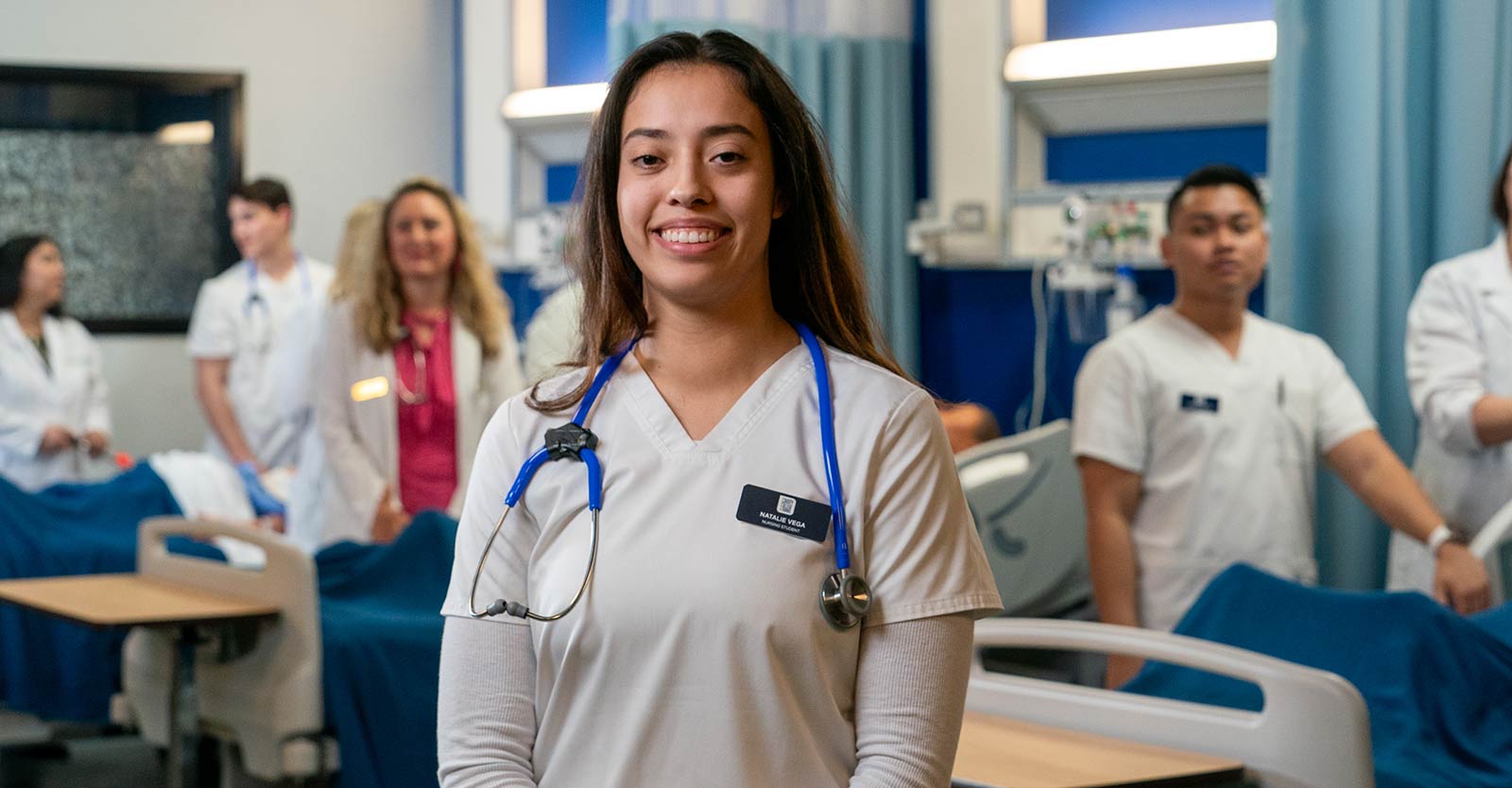What You Will Learn
Nursing is an essential part of today’s healthcare system. Nurses provide direct care to people in hospitals, homes and long-term care facilities; they manage groups of patients in industries and communities; they participate in and lead research projects that are helping advance nursing knowledge. Nurses today are providers, collaborators, coordinators and leaders in healthcare delivery.
CCM’s expert nursing faculty and comprehensive curriculum prepare students for entry into this most trusted profession. Through experiential learning with state-of-the-art simulators and in-person clinical experiences, students learn to integrate the science of healthcare and the art of caring into their nursing practice. Technical standards (specific functional abilities) are essential for the delivery of safe and effective nursing care during clinical training activities and in broad entry-level practice.
Technical standards (specific functional abilities ) are essential for the delivery of safe and effective nursing care during clinical training activities and in broad entry-level practice. An individual must meet, with or without accommodations, these technical standards on acceptance and for the duration of the program. The technical standards can be found in our Nursing Student Handbook.
At CCM we prepare nurses for today, while respecting the history and traditions that make nursing unique.
Curriculum
There are two phases to the Associate of Applied Science (AAS) degree in Nursing program at CCM.
Pre-professional
- Includes general education and science courses
- Typically completed in two to four semesters
Professional
- Admission by separate “professional phase” application
- Acceptance determined by grades in pre-professional phase
- Completed sequentially, in four semesters, for a total of two years
Career Opportunities
According to the U.S. Bureau of Labor Statistics, the median wage for registered nurses in 2024 was $93,600 per year or $45 per hour.
A degree in Nursing will prepare students to work in a variety of settings including home healthcare settings, hospitals, outpatient clinics, physicians’ offices, nursing care facilities and schools.
- Armed Forces
- Behavioral Health
- Community and Public Health
- Critical Care
- Geriatrics
- Hospitals
- Industry Sales
- Informatics
- Maternal-Child Health
- Medical-Surgical
- Nurse Navigators
- Oncology
- Outpatient clinics
- Rehabilitation and Long-term Care
- School Nursing
- Telenursing
*According to the U.S. Bureau of Labor Statistics, www.bls.gov.
Why Study Nursing at CCM?
100% Pass Rate
CCM’s Nursing Program Ranks #1 in NJ, in the U.S. and among Associate Degree Programs based on graduates earning a 100% pass rate on their first attempt on the NCLEX®-RN exam.
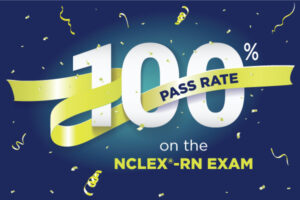
Top 10% Program
The Nursing Program at CCM ranks in the Top 10% of associate degree nursing programs in the nation, according to College Factual.
Extensive Knowledge – Foundation in liberal arts and sciences provides the knowledge and communication skills that nurses require.
Best Evidence – Curriculum is reviewed and revised annually by expert faculty to ensure the most current and best evidence is the foundation for the core nursing courses. The rigorous program at CCM is reflected in our NCLEXRN pass rates, which consistently exceed the national average.
Advanced Technology – High-fidelity simulators are used to provide realistic, hands-on “patient” experiences to students in a safe environment. The new 80,000 square-foot, state-of-the-art Center for Health Professions is slated to open in 2026 to serve as a hub for all healthcare offerings at CCM.
Compassion and Care – Compassion and care threaded throughout the curriculum remain central to the unique nature of the nursing profession.
Faculty – All nursing faculty hold master’s or doctoral degrees and are prepared with extensive current and past clinical experience.
Where You Can Go
Our graduates receive an Associate in Applied Science (AAS) and are eligible to take the National Council Licensure Examination for Registered Nurses (NCLEX-RN). The NJ Board of Nursing licenses registered nurses (RNs). Licensure requirements include: Application completion, passing the NCLEX-RN and Criminal History Background Checks. After passing the NCLEX-RN, our graduates are prepared for entry-level employment as an RN in a variety of settings and specialty areas.
Nurses are committed to lifelong learning, and we highly recommend that all graduates seek their Bachelor’s of Science in Nursing (BSN) from a four-year institution. A BSN is not required to practice nursing in NJ, but it will lead to more opportunities for employment and growth within the profession. Credits from the CCM Nursing Program are readily transferable at many in-state and private colleges and universities. Some four-year institutions may offer an accelerated path from an RN to a master’s degree in nursing.
CCM Nursing students frequently transfer to the following colleges and universities.
In-State:
- Montclair State University
- Ramapo College
- Rutgers University – New Brunswick
- Saint Elizabeth University
- William Paterson University
Out of State:
- Drexel University, PA
- East Stroudsburg University, PA
Online:
- Chamberlain University
- Grand Canyon University
- Thomas Edison State University
Visit our Transfer Services page to learn more.
Paying for Your Nursing Education
Earning an associate degree in nursing is a powerful investment that will pay off over the course of your life, in both increased earnings and job satisfaction. But what is the upfront cost, and how do you afford it?
There’s good news: Money is available to help you pay for school! Through the generosity of CCM Foundation donors, the college awards approximately $50,000 in scholarships to Nursing students each academic year. Our Financial Aid staff can provide lots of information about the process of finding funds to help pay for your education.
Featured Courses
General Psychology
An introductory survey of the scientific studies of human behavior on the following topics: human development, physiology, learning, individual differences, motivation, perception, personality, abnormal and social behavior. The course is designed to prepare the student for further study of the broad spectrum of psychology.
Foundations of Nursing
This course provides the foundational concepts on which nursing education and practice are built. Students apply basic knowledge of these concepts as they begin to learn the practice of nursing. Historical, sociocultural, ethical, and legal tenets are studied. Students gain an appreciation for the profession of nursing as well as awareness of the responsibility and accountability expected.
Basic Medical/ Surgical Nursing
This course focuses on the study of adults with a variety of commonly occurring medical-surgical problems that interfere with the ability to meet basic health needs. Students utilize the nursing process to prioritize and provide appropriate nursing interventions for patients with higher acuity. Students use assessment skills to develop appropriate nursing diagnoses, outcomes and plans of care. Related theory, therapeutic communication skills and nursing care skills are employed in the provision of patient care in clinical facilities. Clinical decision-making skills are further developed.
Accreditation
The nursing program is accredited by the New Jersey Board of Nursing and the Accreditation Commission for Education in Nursing (ACEN). Complaints about the program can be sent to the Board of Nursing at the address below. This accreditation qualifies graduates of the Nursing Program to sit for the National Council Licensure Examination for Registered Nurses, (NCLEX-RN).
The most recent accreditation decision made by the ACEN Board of Commissioners for the associate nursing program is Continuing Accreditation.
View the public information disclosed by the ACEN.
